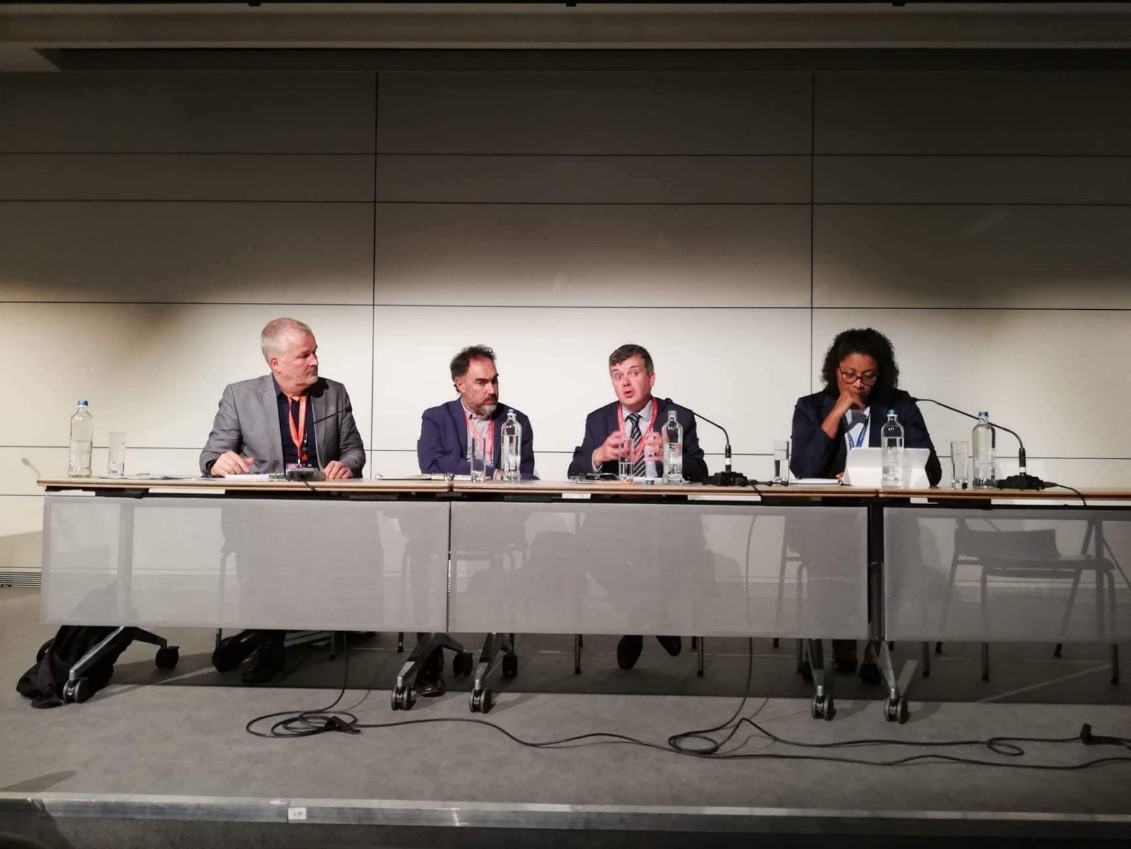
In the framework of the European Week of Regions and Cities, celebrated from the 8th to 11th of October 2018 in Brussels, the United Nations Development Programme (UNDP) jointly organized with the Catalan Agency for Development Cooperation (ACCD) a session titled “Over to Regions! Regional Government’s action for SDG Localization”. The event offered a space for dialogue to review regional actions from around the world, with a focus on the necessary institutional frameworks, concrete mechanisms and public policies to achieve the 2030 Agenda for Sustainable Development.
During the session, Dora lo Giudice, representing the Regional Legislative Assembly of Friuli Venezia Giulia Autonomous Region (Italy) and member of the European Committee of the Regions, outlined the key role of local and regional governments in the localization of the Sustainable Development Goals (SDGs). She highlighted the need to consider local policy makers not as mere beneficiaries, but as active leaders that can make cities and regions more resilient and sustainable.
These remarks were echoed by Carles Llorens, Secretary General of the world association of regions ORU-Fogar, who stated that most of the achievements related to the implementation of the SDGs would depend on the capacities of the intermediate governments and on having the required financial resources to act. He focused on institutional frameworks and mechanisms that can enable SDG achievement and shared some of the most innovative experiences of ORU Fogar’s members. For instance, in Brazil, through the “Rio without extreme poverty initiative”, the government is working with vulnerable families to assist them with food security, basic assistance and education. To see more details and others, check here the Regional Best Practices Database.
Similarly, Javier Sanchez Cano, Head of the Planning, Monitoring and Evaluation Unit of DG Development Cooperation, Government of Catalonia (Spain), affirmed that the SDGs can provide the Catalan cooperation the opportunity to ensure global accountability, facilitate multilevel coordination and prepare new guidelines towards the localization of the SDGs. By focusing on results, the Agenda 2030 is as a starting program, which will enable Catalonia to identify priorities and to articulate an appropriate strategy, thus ensuring a good contribution of the region to achieving the SDGs.
Finally, Alcidia Alfam, SDGs National Focal Point of the Government of Cabo Verde within the Ministry of Finances, described the latest developments in the process of national decentralization and SDG localization. The government is indeed promoting decentralization by evaluating the creation of regions as intermediate level of government, that shall provide a fertile environment for dialogue, participation and power sharing among all entities concerned levels of governance. Moreover, it is encouraging multi-level and multi-stakeholder participation for SDGs implementation through the facilitation of participatory processes for the elaboration of the municipal strategic plans for sustainable development, in line with the national plan for SDGs implementation. Through the UNDP Cabo Verde programme “Local platforms to achieve the 2030 Agenda”, the government is indeed using the SDGs as a bridge to link national policies to integrated local strategies.
In the closing remarks, Francisco Granados and Andrea Norferini, researchers from the Institut Barcelona D'estudis Internacionals (IBEI), presented the preliminary results of the study promoted by UNDP and ACCD on the role of regional governments in localizing the SDGs. Among their findings, they stated that the SDGs framework represents a great opportunity for regional governments to strengthen and deepen decentralization and democratic-participatory processes, as well as to improve the effectiveness of their public policies.
For more details about the workshop check here.

Comments